Search results for Spa
People
Not Found
Tweets including Spa
Space fact:
As early as 240BC the Chinese began to document the appearance of Halley’s Comet.
0
0
12
89
5
SpaceX direct to cell phone growing fast https://t.co/zzOAerzvME
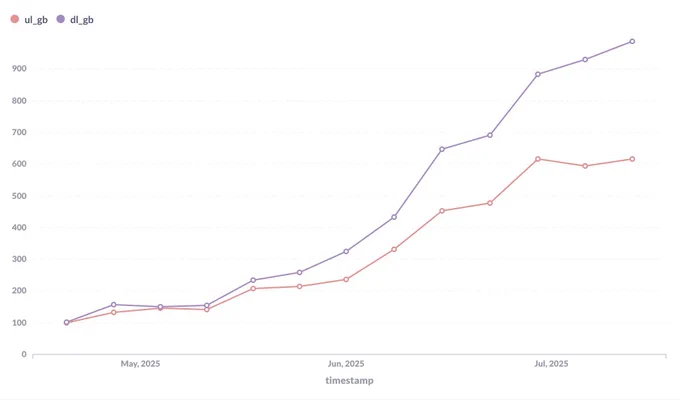
0
0
1.5K
9.6K
943
SpaceX 的“星际飞船”也是专为亚轨道点对点飞行而设计,能以 25 马赫的速度在半小时左右到达地球上的任何地方!如在一小时内从纽约飞往悉尼(民航飞机需飞行 20 多小时)。
这是一项拟议中的功能,截至 2025 年 7 月尚未投入使用,目前正在进行测试。 https://t.co/N0PbRNxJl2
Show more
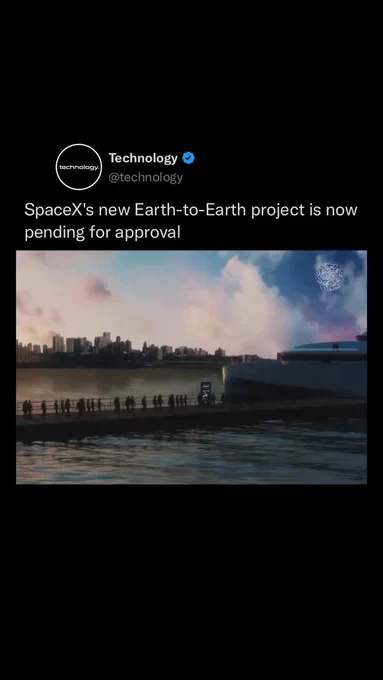
0
0
0
4
1
Space fact:
A black hole have such strong gravity that nothing, not even light, can escape it. That’s why black holes are black. We can’t see them directly. But we can see the effects black holes have on the space around them.
Show more
0
0
1
5
0
SpaceX will launch over 90% of all of Earth’s payload mass to orbit this year! 🤯
When Starship is launching at high rate, SpaceX will probably carry >99% of Earth’s payload mass to orbit!
https://t.co/wBPMg32we4
Show more
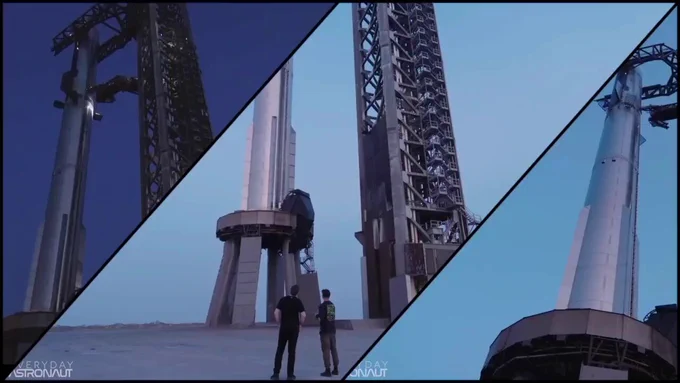
0
0
17
127
17
Space view showing both Earth and the Moon
https://t.co/cfsyDhiaIo
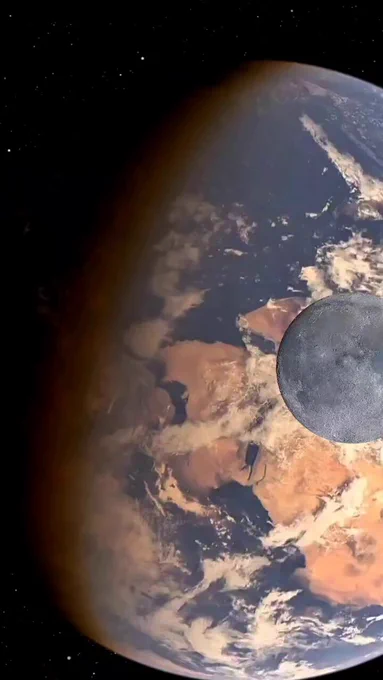
0
0
261
2.1K
309
SpaceNation Trading Campaign is LIVE!
Trade $OIK with Binance Wallet on DEXs and earn up to 15% trading fee rewards based on your volume!
1⃣How to Participate?
Use @BinanceWallet to trade in designated OIK/USDT pools. Reach daily volume thresholds to qualify for fee rebates.
Important Notes:
❌ CEX trades are INELIGIBLE
✅ Only Binance Wallet users can participate
2⃣Reward Rules
1. Eligible Pools (Buy/Sell $OIK)
- PancakeSwap V3: 0x985c205bb3a294c4778A9318aecc42b9c07B0b1d
- Uniswap V3: 0x7840fafdea1292068c1167f5da035a54bd31fae5
2. Rebate Tiers
Daily Volume ≥ $16,384 → 10% rebate
Daily Volume ≥ $32,768 → 12.5% rebate
Daily Volume ≥ $65,536 → 15% rebate
Formula: Your Reward = Trading Volume × 0.01% × Fee Rebate Rate
3⃣Tracking & Distribution
📆 Tracking Period: 00:00 - 23:59 UTC daily
💸 Distribution: $OIK airdrops to eligible wallets by 08:00 UTC the next day.
Thank you to our steadfast community and Binance users for your unwavering support! We’ll continue building on @BNBCHAIN.
Show more

0
0
28
335
135
Spark plug thread repair https://t.co/3xqWs0zElC

0
0
6
49
2
Sparrow having a drink on a lotus leaf
https://t.co/TeUNUe5oQ0

0
0
8
42
8
Space and Time是由微软支持的去中心化的数据库,通过零知识证明(ZK)技术验证数据查询的正确性。
它具备独特的优势:
1,采用Proof of SQL, 是加密领域速度最快的 ZK 协处理器,可在 1 秒内完成对1M行以上数据的证明。
2,多链集成,支持以太坊、Polygon、Avalanche 等链。
3,将复杂查询逻辑在链下执行,但可通过 ZK 技术在链上验证其“结果无误”
比如说,可以帮助DEFI项目实时查询 TVL、收益率、用户活动、质押量,帮Gamefi分析游戏链下行为、经济数据与链上资产结合,还能将传统 Web2 数据引入区块链智能合约系统,所以目前包括富达(Fidelity)、美国银行(US Bank)等金融机构,Chainlink、Sui、ZKsync 等 Web3 头部项目,都已集成或正在使用 Space and Time的生态工具的数据服务~
Show more
📣 Just announced at #MSBuild#: Space and Time indexed blockchain data will be integrated with @Microsoft Fabric.
As part of the integration, Microsoft developers will be able to access Space and Time indexed data from Bitcoin, @SuiNetwork, and @ethereum through Fabric. https://t.co/jOHThHuuVI
Show more

0
0
3
1
1
Space fact:
The word “astronaut” means “star sailor” in its origins.
0
0
19
466
55
Space fact:
On average, a bit of space debris crashes back to Earth about once a week.
0
0
11
201
20
Space fact:
The first living mammal to go into space was a dog named “Laika” from Russia.
0
0
23
249
12
SpaceX has assembled the most talented team of space vehicle innovators, builders, and operators the world has ever seen. I may be biased, but I truly believe this. And we are just getting started. Our future in space has never been brighter!
If you have a passion for space, thrive on hard work, and want to see your efforts contribute to monumental human achievements, come join us at SpaceX. The journey is just beginning.
Show more
0
0
111
1.7K
203
Space and Time (SXT) @SpaceandTimeDB 在 5/8 推出主网跟代币 TGE,然后上线了 Binance 跟 Coinbase,不少朋友迷惑这是一个什么项目以及做啥的?
Space and Time 其实属于 To B 的基础设施类,是一个通过 ZK 技术证明数据的区块链,为企业、dApp、开发者提供区块链安全和企业级数据处理。
对这个项目有印象的应该多数也是源于微软的投资:微软的风险投资基金-M12 领投过 Space and Time 2000 万美元的战略融资。当时在区块链行业引起轰动,关注度与讨论度非常高。
那么 Space and Time 的核心业务/产品是什么?
作为 AI 与区块链的可验证数据库,Space and Time 的核心是将不可篡改的链上和链下数据结合起来,为智能合约和 LLM (大型语言模型) 提供企业级应用场景。
◉ZK 协处理器
为此,Space and Time 开发了一种新型亚秒级 ZK 协处理器 - SQL 证明,可以在亚秒级时间内提供无需信任的数据处理。这是行业目前最快的 ZK 验证方案,60 万 + 行的数据可以在 1 秒内完成验证。
它通过密码学保证 SQL 数据库查询在未被篡改的数据上准确计算。使用 SQL 证明器,开发者可以在无需信任的情况下对链上和链下数据集进行计算,并在交易过程中将结果及时证明给智能合约,以支持更复杂的基于数据的 DeFi 协议。
◉区块链索引器及去中心化数据库
目前 Space and Time 支持多条主流公链的链上数据索引,其中包括 Ethereum、Bitcoin、ZKsync、Polygon、Sui、Avalanche 等。
通过 Space and Time 的区块链索引器,轻松将链上数据集成到你的 dApp 或智能合约。
无需部署 API 服务器、只需几秒钟。而基于 L1 验证节点的去中心化数据库,也保障了数据的可验证及防篡改。
所以作为行业领先的可验证数据库,诸多大家耳熟能详的企业/机构/项目其实都是采用 Space and Time 的数据方案,例如:
◎与微软合作,通过 Microsoft Azure Marketplace 向开发人员提供实时区块链数据。通过 Azure 市场的一键式部署,开发人员能够访问、管理和分析区块链数据。企业可以在不改造现有技术架构的情况下开发区块链。
◎为 Bitget 交易所的储备金证明提供可验证的链上储备数据与计算防篡改审计追踪,确保交易所的储备数据与计算准确、未被篡改且可验证。
◎与 L1 公链 Sui 合作,将 Sui 的 RPC 2.0 集成到 Space and Time 的区块索引器。让开发者能够轻松使用经过零知识证明的 Sui 数据构建分析、dApp、游戏和仪表盘。
◎为 Chainlink 的 DeFi 收益率指数 (CDY Index) 提供区块链索引和数据库技术。确保数据的准确性、稳健性和市场代表性,为链上借贷机会的发现和资本效率提升提供支持。
Show more
The ticker is SXT.
SXT is the native token of Space and Time, designed to sustain a decentralized, permissionless ecosystem that rewards participants for contributing high-quality datasets, securing cryptographically-tamperproof tables, and delivering sub-second ZK proofs to clients on popular chains.
Show more
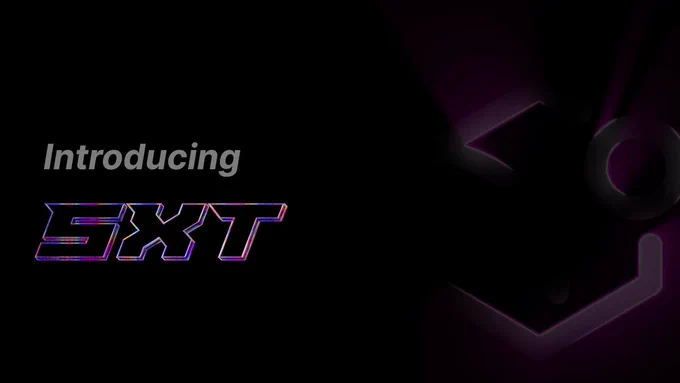
0
0
0
1
0
SpaceX is going to launch Starship 9 in 6 days https://t.co/zFZUICrXw6
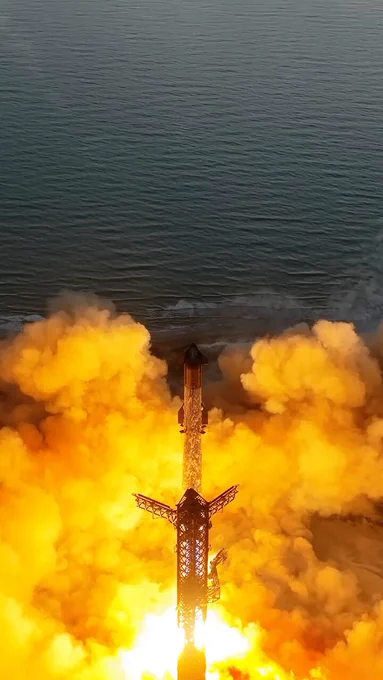
0
0
151
1.8K
326
SpaceComputer is launching into a new frontier 🖖
🛰️ Pre-seed round led by @primitivecrypto 🛰️
Participation from → @nascentxyz, @tangent_xyz, @symbolicvc, @publicworksfm, Merkle Ventures and Star-Shield.
Epic roster of angels → @loi_luu, @sandeepnailwal, @Melt_Dem https://t.co/90Tqq1XKKO
Show more
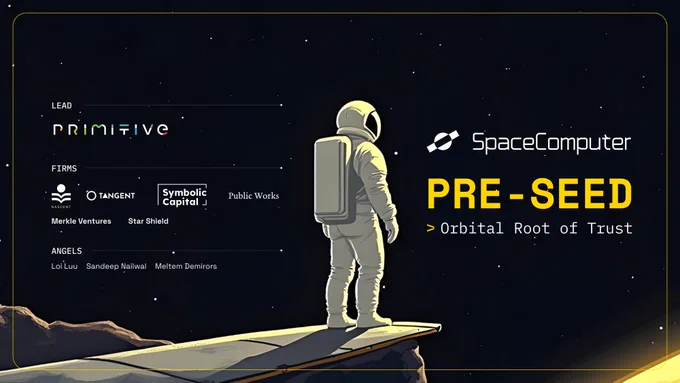
0
0
30
232
65
Space fact:
All the planets in the solar system can fit between the Earth and moon with 2,729 miles to spare.
0
0
10
227
27
SpaceX launched 138 rockets in 2024, averaging one every 2.6 days https://t.co/z8MzTC6YhQ

0
0
38
235
41












